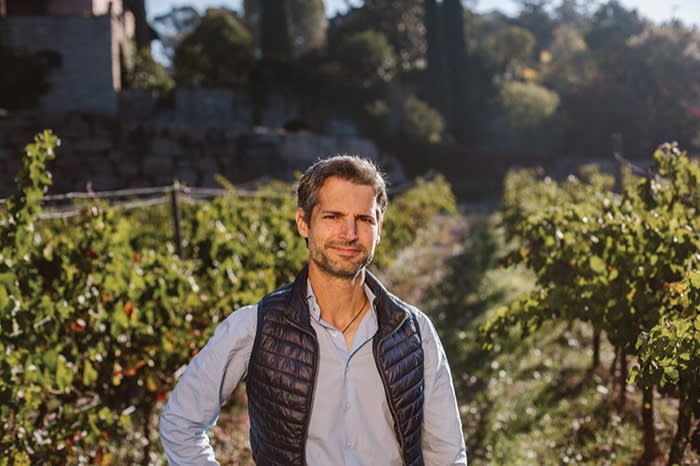It could be explained that Ramon Roqueta was born to make wine. He is the fifth generation of his spouse and children to run Roqueta Origen, a group of wineries in Catalonia, north-east Spain. In 1898, his fantastic-great grandfather established the first of the family’s four wineries, but the business’s origins date back again even even more.
Historical documents exhibit that Roqueta’s ancestors commenced making wine at the Masia Roqueta farmhouse, in the Bages area north of Barcelona, in 1199. Much more than 800 several years later on, the company’s headquarters are on the similar internet site.
Roqueta turned to Iese Business School in Barcelona to put together for his eventual succession. Right after education at wineries in France, Australia and the US, he enrolled on the Iese MBA in 2005 to sharpen his enterprise and management skills. “It’s not only about generating wine, but advertising it and producing the business successful,” he describes.
Following graduating in 2007, Roqueta labored in consulting, then took up a management purpose in the family organization in 2009. It was about this time that he enrolled in Iese’s Alumni Finding out Program, a sequence of no cost coaching classes concentrating on specific parts of business enterprise. In excess of quite a few decades, he took courses on family business enterprise challenges such as succession preparing and handling family members conflicts.
He learnt how to produce a family members protocol, a doc that codifies the business’s values, vision and mission, alongside with policies of ownership, governance and administration. The process associated the many loved ones members, which bolstered unity. “This has been a aggressive gain for the corporation in excess of the generations,” suggests Roqueta, who took over from his father, Valentí, as main govt in 2014.

Other business schools are emulating Iese by launching classes that concentrate on the needs of relatives firms, which are inclined to get a extended-phrase outlook on investments as an alternative of chasing quarterly returns. Relatives corporations normally have robust stakeholder relationships and much more faithful workforces than other organizations. They are also typically more chance-averse and have significantly less credit card debt.
“We can master many issues from family corporations,” suggests Allan Discua Cruz, director of the Centre for Family Business at Lancaster College Management College in north-west England. “There are so many principles and dynamics that are worthy of comprehension, these kinds of as organization continuity, legacy, stewardship and resilience.”
Some teachers say that each individual business enterprise university student should discover about household business. “With the bulk of financial exercise and non-public sector work in many European international locations generated by loved ones businesses, it is remarkably most likely that our graduates will be working for 1 at some point,” says Marta Elvira, chair of spouse and children-owned company at Iese.
She notes an growth of career chances, like at the expanding ranks of relatives workplaces, in addition to employment at businesses that company household businesses, such as banks and consultancies. Other, additional entrepreneurial, pupils are intrigued in setting up new small business dynasties.
Small business colleges in Europe are as a result sharpening their focus on household enterprises, which make up 60 per cent of the region’s organizations — from small firms to multinationals these types of as Exor, the expense enterprise owned by Italy’s Agnelli family members, and Germany’s Volkswagen, the carmaker managed by the Porsche and Piëch people.
Morten Bennedsen, tutorial director of the Wendel Global Centre for Household Company at Insead small business university in France, factors out that family members business enterprise analysis only emerged as an tutorial area in the 1980s. “Business colleges have not typically centered on spouse and children companies. That is transforming as recognition grows,” he suggests. Numerous business owners nonetheless do not feel their families have to have a company training, Bennedsen states, but adds: “As these corporations scale, there is a will need to professionalise the management and governance. That is what you simply cannot understand from the relatives.”
About 10 for each cent of the 1,000 MBA students who enrol at Insead every single year are from spouse and children-owned corporations. Ordinarily, they are heirs, even though recent entrepreneurs just take element-time govt classes to handle the pressures of preserving a family legacy. Insead offers a spouse and children enterprise elective in its MBA, in addition to an executive programme that addresses the troubles these providers experience.
Spouse and children corporations are sometimes reported to be primarily resilient through crises, but the research is inconclusive. Daniela Maresch and Matthias Fink at France’s Grenoble Ecole de Management uncovered that these types of firms described drastically extra fiscal losses than some others throughout the pandemic. The original stabilising impact of household involvement can switch into a liability as crises unfold, the professors say, as the burden of responsibility ignites loved ones conflict.
Milan’s SDA Bocconi School of Management strategies to start new government courses for household enterprises next year. “There is now a stronger concentrate on danger mitigation and resilience,” says Alessandro Minichilli, professor of company governance at the university. “The demand for business education in places like succession setting up, sustainability and governance is large.”
Rania Labaki, head of the Edhec Family members Organization Centre in Lille, France, details out that only 30 for each cent of household enterprises make it to the 2nd generation, with the survival rate dropping precipitously with each succession.
The major transfer of wealth on report is predicted in the coming ten years as infant boomers retire. In Europe, at the very least $3.2tn will change palms by 2030 and, in a lot of European economies, the selection of loved ones organization leaders in excess of 70 has been increasing in the previous 10 years.
Labaki believes succession is wherever company universities can seriously make a variance: “Young heirs usually facial area a obstacle of legitimacy, and they need to have our competencies to lead the spouse and children business,” she states.
